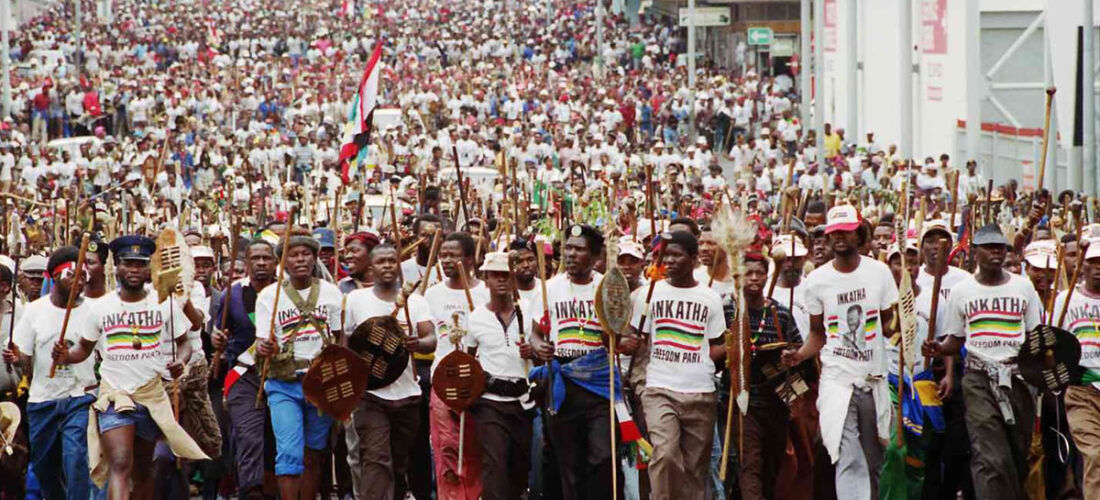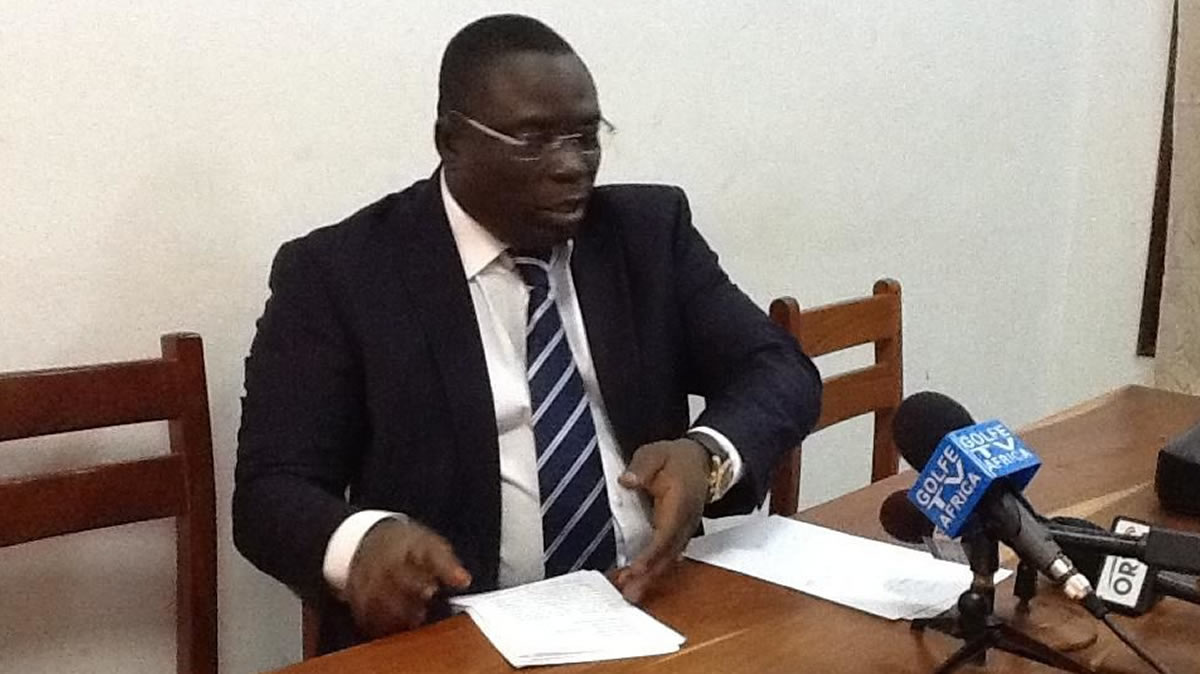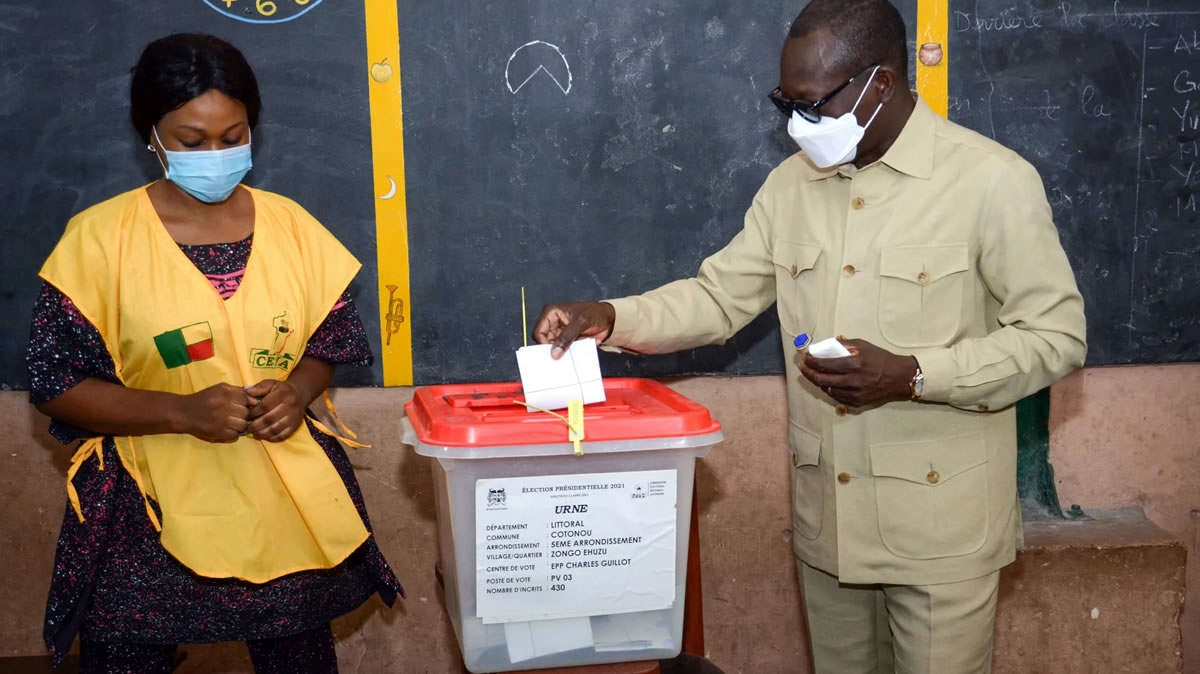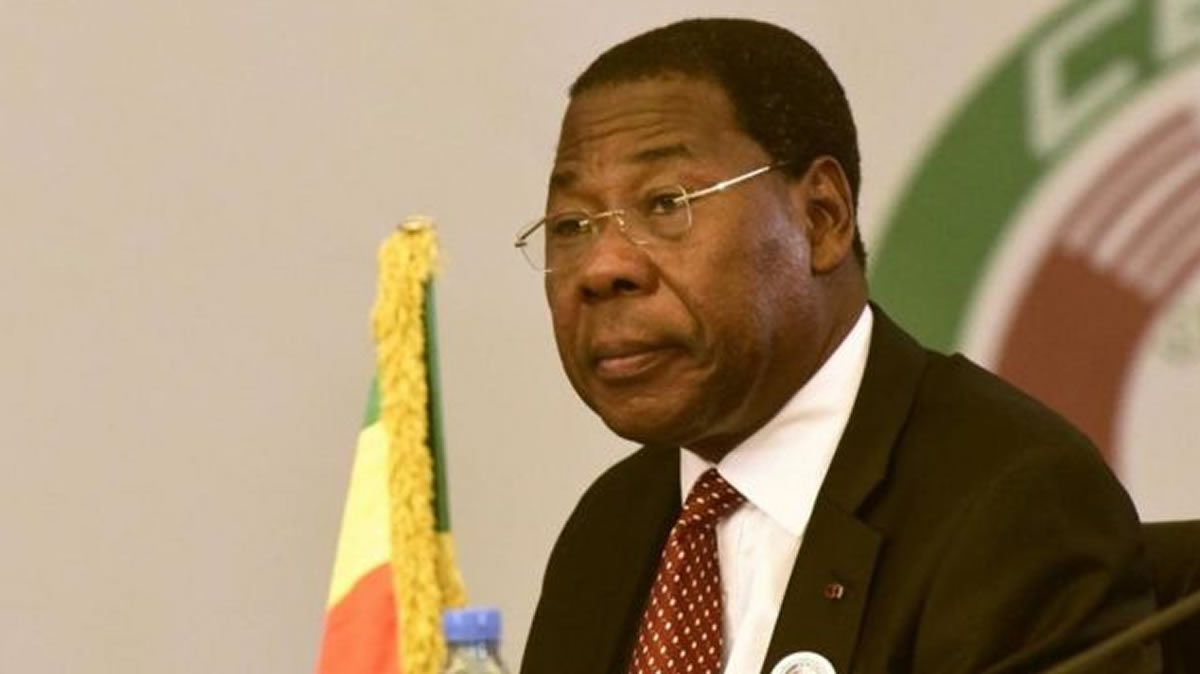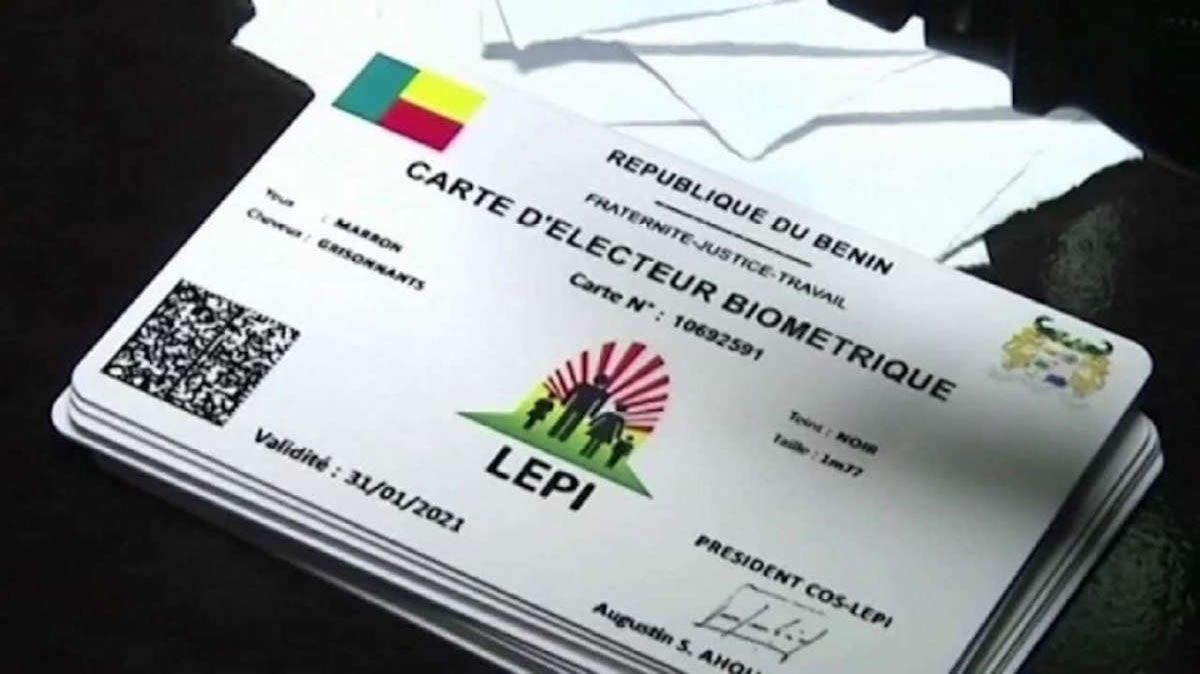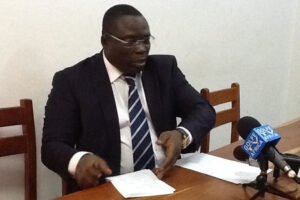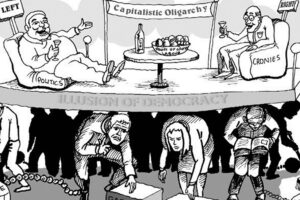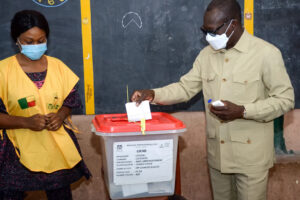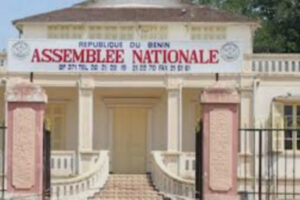The event was celebrated at South Africa Embassy
At the South African Embassy in Cotonou, Benin officials, local diplomatic community, and South Africans living in Benin met late Wednesday evening to celebrate the end of the apartheid regime on March 17, 1992 thanks to a referendum, which resulted in the abolition of the system of racial discrimination in place in South Africa.
The Benin Government was represented at the ceremony by a delegation headed by Mr. Désiré Adadja, Minister in charge of Communication and Information Technology and Mr. Justin ADAMAI, Minister in charge of Environment and Ecology. Other institutions were also represented. The Chairman of the Constitutional Court, Robert Dossou represented his Institution. Joseph Gnonlonfoun represented the Audiovisual and Communication High Authority (HAAC), Moïse Mensah represented the High Commissar of Concerted Governance. There were also MPs who attended the ceremony
The ceremony scheduled to start at 7 p.m. began with the National Anthems of both countries. Then the South African Ambassador in Benin, Sikose Ntombazana Mji, delivered her speech. In her address, after pointing out the progress made by South Africa since the end of apartheid regime in 1992, she related the involvement of South Africa at the AU level for the setting up of NEPAD and MAEP and the history of diplomatic relationships between Benin Republic and Republic of South Africa. She also praised the economical and diplomatic relationships between both countries that she qualified them as excellent. She talked about the investment of MTN in the GSM sector in Benin and the presence on Benin market of different foods and drinks made in South Africa. She concluded by expressing her desire for these relationships to improve further.
Désiré Adadja, on his part, as the representative of Benin Government, called to the minds of the attendance the economical and political achievements of South Africa since the end of the apartheid regime. He emphasized the role of its leaders, Nelson Mendela, Tabo M’Béki and so on. He expressed his satisfaction and admiration with the involvement of South African leadership in conflict prevention and resolution on the continent. He said that the Benin Government feels deeply grateful towards South Africa. Finally, he congratulated the current South African President, Jacob Zuma for his election in the last April.
He ended his address by hoping that the relationships between both countries be deepened, extended, and diversified. It was an occasion for both countries to reaffirm their commitments to African Unity. Afterwards, a cocktail party took place in the Embassy.
This celebrate was actually due to take place on April 27, which was the day, in 1994, when the first democratic election was held in South Africa, an election during which all adults could vote irrespective of their race, and the day, in 1997, when the new constitution took effect.
Before then, since the end of World War II in the 40’s, the country has been under apartheid regime. With the enactment of apartheid laws in 1948, racial discrimination was institutionalized. Race laws touched every aspect of social life, including a prohibition of marriage between non-whites and whites, and the sanctioning of “white-only” jobs. In 1950, the Population Registration Act required that all South Africans be racially classified into one of three categories: white, black (African), or colored (of mixed decent).
In late 1991, the Convention for a Democratic South Africa (CODESA), a multiracial forum set up by de Klerk and Mandela, began efforts to negotiate a new constitution and a transition to a multiracial democracy with majority rule. In March 1992, voters in a referendum open only to whites endorsed constitutional reform efforts by a wide margin.
This kind of ceremony at the South African Embassy in Cotonou aiming at celebrating this major turning point in the country’s history is the first since this Embassy has been installed in Benin in 2007.



